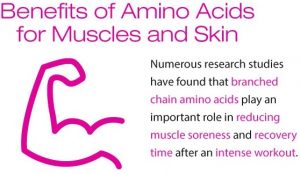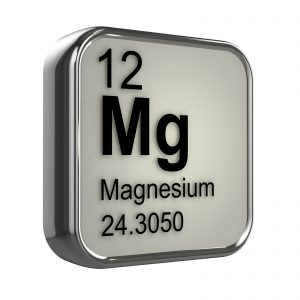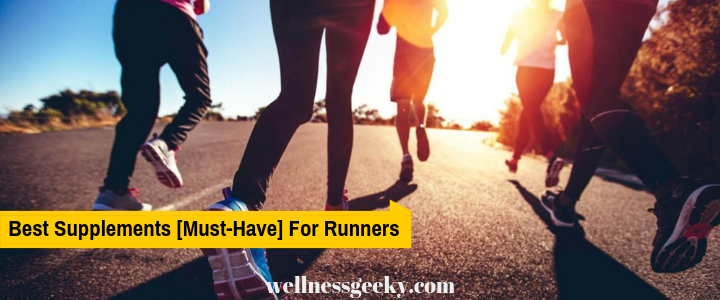
Runner athletes can take various supplements but be warned: these don’t have magical powers.
You still have to train hard and yes, run that extra mile. Diet is an essential part of the process too.
The supplements below have proven benefits, and they all work because they give you an energy boost, plus the nutrients your body needs to recover after a strenuous workout.
But being an athlete is a game of concentration, ability, and training.
We’re going to tackle matters of weight loss, recovery, and energy, plus advice on how to take specific supplements right below:
What Supplements Should Runner Athletes Be Taking To Boost Endurance Performance?
Below are our top supplements that will improve your performance and help your recovery. We tried most of them, so we’re speaking from experience.
We also did extensive research and discussed things with our bone health professionals so that we could separate scientific facts from rumors. Below are my guide on what supplements to take to run faster run longer, and for speedier recovery:
#1 Best BCAA for Runners (Branched Chain Amino Acids)
Is it true that runners need BCAAs to perform better? Some say they couldn’t live without them, especially if they’re not casual joggers.
The reason is that running takes a toll on your muscles. Running is a high-impact exercise that puts a real strain on your lower body mainly, so your leg muscles can become overworked.
Running also uses up a lot of calories, helping you lose weight.
Women tend to eat less protein and BCAA is Amino Acid that is found in protein that can help with recovery in men and women. A few other supplements for female runners are also necessary such as Iron and vitamin D. BCCA is one of the best amino acids for Running and Endurance athletes.
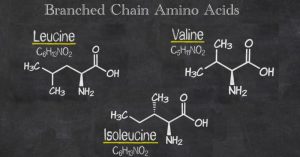
High-intensity training puts you in a catabolic state, so your body doesn’t work to build more muscle tissue, but instead breaks it down. And this is where amino acids come in.
Amino acids play an essential part in synthesizing the protein you need for building muscles and for recovering.
Amino acids are a good source of energy too, so you can take them before or even during your training.
Transparent Labs BCAA glutamine is my go-to choice and the best BCAA for runners because it reduces fatigue, increases endurance, and allows your muscle tissue to repair and rebuild after running. It is one of the best supplements for ultra runners.
Its mix of active ingredients is the result of extensive clinical research, and the recommended doses come from peer-reviewed scientific research.
We also like that Transparent Labs BCAA glutamine has no artificial additives, colored dyes, or fillers.
The mix of Leucine, Isoleucine, Valine, Glutamine, and Coconut Water Extract increases protein synthesis and glucose metabolism.
Therefore, your body will burn carbs more efficiently, and your muscles will store more glucose so that your body doesn’t destroy lean muscle mass.
It contributes to less muscle damage, reduces tiredness, and increases fat loss.
.
#2 Pre-Workout Supplements For Running / Caffeine
Coffee is the best supplement for running to take before you run, especially in combination with Transparent Labs BCAA Glutamine.
This product is an excellent pre-running supplement even by itself if you’re trying to avoid caffeine.
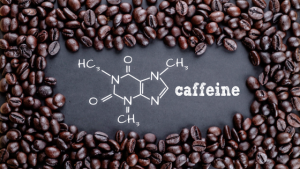
There are plenty of other advantages of coffee: it’s affordable, tasty, has just a couple of calories per cup unless you add milk or cream, and it doesn’t cause an upset stomach.
Take into account that coffee takes quite a few hours to get out of your system completely.
So, if you have problems falling asleep, try to avoid it before your night workouts.
Follow my guides regarding Pre Workouts For Runners and what is the best creatine runners can take.
#3 Glutamine For Runners / Supplements for Running Faster Type
Glutamine is a nonessential amino acid you already have in your blood and muscles.
But when you’re doing intense workouts, glutamine is among the first amino acids to go.
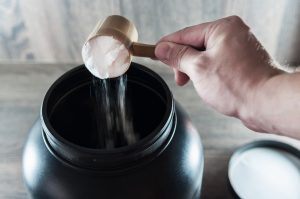
Low glutamine levels make you feel tired in the short term and can also cause exhaustion in the long term.
Fatigue leads to immune problems and an increased risk of getting all sorts of illnesses.
Remember that catabolic state we discussed before? A 20mg supplement of glutamine helps you avoid that so that you can recover faster.
Glutamine helps muscle growth, improves your endurance levels, and can help you rehydrate after a run, so it’s an excellent post-workout supplement.
#4 Probiotics Supplements
There’s some exciting research nowadays that backs up the fantastic effect of good gut bacteria on our overall health.
Who would have thought that gut bacteria can be essential for your brain health, hormones, and immune system?
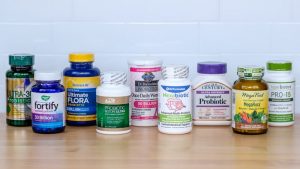
Weight loss also messes with your hormones and may cause digestive problems, so it’s crucial to enlist the help of a good probiotic.
Silver Fern Ultimate Probiotic Supplement is the best on the market because it helps with nutrient absorption, fights harmful bacteria, and creates the perfect conditions for good bacteria to thrive in your gut.
Another advantage is that it fights off bloating, which can put hinder your run. Take it before bedtime, and it will work like a charm.
#5 Calcium
Take calcium before bedtime to help your bones be strong and healthy.
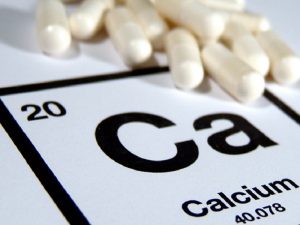
When you’re doing high-impact activities, your body uses some of your calcium stores to stabilize your metabolism.
A calcium supplement avoids the toll this can take on your bones. Besides, bone loss can lead to fractures, which are so not fun.
#6 Vitamin D3
Does your eye twitch? Do you feel stressed? Are you sleep-deprived?
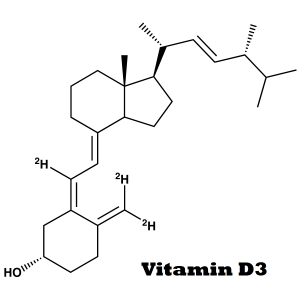
Fear not, by the way; all these are common symptoms among runners because of intense exercise.
Vitamin D3 helps your bones to absorb more calcium. You are taking it alongside your calcium tablets before bedtime is wise.
Vitamin D3 supplementation helps avoid osteoporosis or arthritis as well as other joint issues.
#7 Fish Oil
Ah, that good spoon of fish oil or grandma insisted we should gobble down. But what we loathed as children may save our behinds as adults.
Fish oil is full of omega-3 fatty acids which reduce swelling and improve our immune systems.
Besides, your body doesn’t produce these acids on its own, so your only choice is to supplement because there’s no way you can get enough just through diet.

That way, runners can be stronger and perform better.
Fish oil reduces swelling, which means there will be less muscle damage and soreness after you run.
From that point of view, fish oil can help you recover faster, improving your overall endurance.
And if the fishy taste is a bit too much for your palate, try some fish oil capsules. You can get them before bedtime or at any other time during the day.
#8 Vitamin C
Vitamin C is a reliable antioxidant, well known for boosting your immune system.
When you’re exercising a lot, your body undergoes oxidative damage.
When running, your heart rate increases, and so does your breathing.
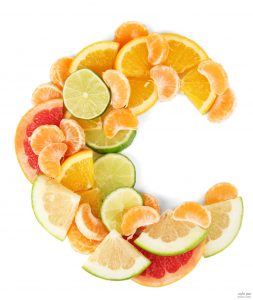
If you’re running outside in a big city, chances are you might take in a lot of environmental toxins caused by air pollution.
Taking vitamin C is a good prevention measure against various illnesses, like the flu. Even if you do get sick, it helps your body recover faster.
And we all know how difficult it is to work out when our energy levels are low, right?
But vitamin C supplementation can boost your stamina and performance, helping you train even when you’re not 100% healthy.
#9 Vitamin E
Vitamin E helps fight free radicals because of its antioxidant properties.
With proven benefits for your cardiovascular system’s health, vitamin E is especially useful when you’re exercising for a long time.
Prolonged exercising puts a strain on your heart, so naturally, you need some help with keeping your heart healthy for longer.

For instance, vitamin E improved various blood disorders, like anemia.
Running for a long time means your heart needs to pump more blood and, if you’re already iron-deficient, you need some extra vitamins to keep you up and to run.
Vitamin E is linked to a healthier brain, seeing as it can ease the symptoms of Alzheimer’s or dementia.
Running can help you unwind, but, if you’re under a lot of pressure, so can vitamin E.
If you’re a lady who loves to run but hates putting things on hold because of painful menstruation, vitamin E will help.
Take it before and after your menstrual cycle to reduce your pain and menstrual blood.
That way, you can enjoy running for longer, even during days you would typically spend crouching on the couch.
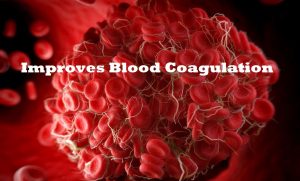
Running outside can damage your skin, but vitamin E has all sorts of proven benefits when it comes to skin health, especially things like sunburn.
Lastly, vitamin E can improve the symptoms of rheumatoid arthritis when taken alongside the treatment your doctor prescribed.
It means vitamin E can be a good helper when it comes to various joint pains caused by running, alongside calcium and vitamin D3.
#10 Magnesium
Another vitamin to add to your nightcap of multivitamins, magnesium is a capital factor when it comes to endurance.
Magnesium increases your energy levels, prevents twitches, supports controlled muscle movements, plus it makes your bones healthier.
Magnesium is also related to proper nerve function and a healthy heart.
Magnesium is a big helper when it comes to digestive issues like constipation and indigestion.
Sometimes, when you’re running for a long time, and you’re not getting all the hydration you need, you may become constipated.
Constipation is also associated with weight loss, which can happen if you’re running a lot.
Indigestion is also frequent among runners, who might suffer from heartburn, especially when running soon after a meal.
Magnesium pills are frequently-used antacids, while magnesium hydroxide is the fastest way to reduce painful heartburn.
Lastly, magnesium is frequently administered by ob-gyns who want to reduce pregnancy-associated high blood pressure.
But you don’t have to be pregnant to get your heart rate up when you’re running.
If this starts making you feel uncomfortable and has you stopping instead of continuing your run, magnesium can increase your endurance and stamina.
#11 Electrolyte Supplements For Runners
There are all sorts of drinks with added electrolytes, which add some extra minerals to the mix.
When you’re running, you’re losing water and need to rehydrate.

These electrolytes can be calcium, magnesium, phosphate, potassium, and sodium.
They carry electrical charges that stimulate your muscles and nerves, thus promoting faster recovery and brain health.
Electrolytes regulate your bodily fluids too, which in turn keeps your blood pressure steady and your cells healthy.
If your cells are healthy, then so will your tissues, especially muscle and bone tissues.
It’s essential to replenish your electrolytes when you’re running.
Do you know how salty your sweat is? That’s because you’re losing a lot of sodium.
Some runners who overdo it end up vomiting or having diarrhea.

Honey Stinger is the best brand of electrolytes on the market for runners.
It’s easy to chew one before or during your run, they’re USDA-organic and gluten-free, with just 160 calories per pack.
Honey Stinger has 100% of the recommended daily amount of Vitamin C, to help you fight oxidative stress when you’re running, as well as environmental toxins.
With its low glycemic index, Honey Stinger will stabilize your blood sugar levels, so you can benefit from a sustained energy boost instead of a high insulin crash you get from eating chocolate bars or other processed carbs.
3 Top Supplements for Recovery
With that in mind, let’s compare some of the 3 top supplements for recovery: BCAAs, fish oil, and L-carnitine. We already talked about the first two.
BCAAs reduce post-running muscle soreness, so you don’t need to take a lot of rest days.
Fish oil, with its EPA and DHA fatty acids, helps reduce inflammation and muscle swells.
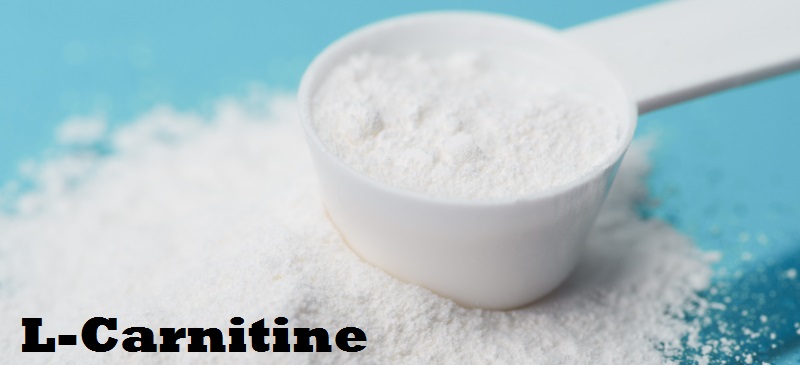
But you want to stop your body from burning through muscle mass, don’t you?
L-carnitine helps your body focus on breaking down fat for energy, therefore increasing your performance.
That leads to more significant oxygen consumption, which means more red blood cells are created, which means more energy.
That’s why you can take L-carnitine to recover faster after a strenuous workout.
Should Runners Take Creatine?
For their part, the FDA says there's not enough evidence to show whether or not creatine's benefits outweigh its side effects. "Given that creatine is safe and relatively inexpensive, the agency is continuing to study its potential benefits and risks, including whether it is suitable for patients who need to lose weight, and its effectiveness at increasing muscle growth," a spokesperson tells SELF.
Plus, when supplementing, you should make sure you're getting the correct dose for your needs, the agency warns. As a general rule of thumb, if you're trying to get lean, you're probably better off with creatine, protein powders, and some serious cardio than a ton of post-workout protein supplements. But if you've got your sights set on getting leaner but still haven't tried some form of cardio yet, you can't go wrong with supplements that contain creatine, Upson says.
Which Vitamin Increase Running Stamina?
For runners, stamina is key to achieving personal bests and enjoying the experience of long-distance running. While training and conditioning are essential, nutrition also plays a crucial role in enhancing performance. Among the various nutrients, certain vitamins and supplements are particularly beneficial in boosting running stamina. Let’s explore how Vitamin B12 and beta-alanine can help improve your endurance and overall running performance.
Vitamin B12: The Energy Booster
Vitamin B12 is essential for the production of red blood cells, which carry oxygen to muscles. Adequate oxygen supply is crucial for endurance sports like running. B12 also plays a vital role in the metabolism of fats and carbohydrates, converting them into energy. Runners with low B12 levels may experience fatigue and reduced performance. Natural sources of Vitamin B12 include meat, fish, eggs, and dairy products. For vegetarians or those with absorption issues, B12 supplements can be an effective solution.
Beta-Alanine: The Muscle Buffer
Beta-alanine is a naturally occurring beta amino acid that is gaining popularity among endurance athletes for its stamina-boosting properties. When consumed, beta-alanine combines with histidine to form carnosine, which acts as a buffer against the buildup of lactic acid in muscles. This delay in lactic acid accumulation allows athletes to maintain high-intensity performance for longer periods.
How Beta-Alanine Works
During intense exercise, hydrogen ions accumulate in the muscles, leading to a drop in pH and causing muscle fatigue and burning. Carnosine, synthesized from beta-alanine, helps buffer these hydrogen ions, maintaining pH balance and delaying the onset of muscle fatigue. This buffering effect can improve endurance performance, allowing runners to sustain higher intensities for longer durations.
Scientific Evidence
Numerous studies have demonstrated the effectiveness of beta-alanine in enhancing exercise performance. A study published in the journal Amino Acids found that beta-alanine supplementation significantly improved high-intensity exercise performance and reduced fatigue. Another study in the Journal of the International Society of Sports Nutrition showed that beta-alanine increased muscle carnosine levels and improved performance in activities requiring sustained effort, such as running.
Dosage and Timing
To experience the benefits of beta-alanine, it is recommended to take 3-6 grams per day, divided into smaller doses to minimize the tingling sensation (paresthesia) that can occur with higher single doses. Consistency is key, as it typically takes 4-6 weeks of regular supplementation to build up carnosine levels in the muscles.
Practical Tips for Runners
To maximize the benefits of Vitamin B12 and beta-alanine, runners should aim for a balanced diet rich in nutrient-dense foods and consider supplementation if necessary. Regularly monitoring vitamin levels through blood tests can help identify deficiencies and adjust dietary intake or supplementation accordingly. Hydration, rest, and a well-rounded training program are also vital components of a runner’s stamina and overall performance.
In summary, both Vitamin B12 and beta-alanine play significant roles in enhancing running stamina. Vitamin B12 supports energy production and oxygen transport, while beta-alanine buffers muscle acidity, delaying fatigue. By incorporating these nutrients into your diet and considering supplements, you can support your body’s energy production, muscle function, and recovery processes. Coupled with proper training and hydration, these nutrients can help you achieve your running goals and maintain peak performance.
Supplements for Runners Joints & Bones: Glucosamine & Vitamin D
In need of the best joint care supplement for runners? By the end of this guide, you’ll be an expert on the kinds of running supplements that will help you train for a race, endure a race, and recover just in time for the next one.
You already know that vitamin D helps your body absorb more calcium. So, you can have healthier bones and avoid joint pain?
But what can glucosamine do?
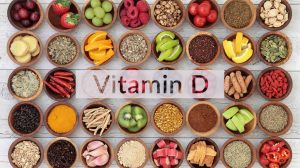
There are various studies that show that glucosamine is essential to building cartilage, the connective tissue that pads your joints.
While cartilage is supposed to be flexible, running can make it break down easier.
Glucosamine has sulfur which repairs broken cartilages and reduces osteoarthritis pain, knee pain, back pain, or other joint pain.
Glucosamine will also reduce joint stiffness and swelling, helping you have healthy bones and joints.
Hope my top supplements for runners guide will help you on your journey to becoming a better and faster runner!

